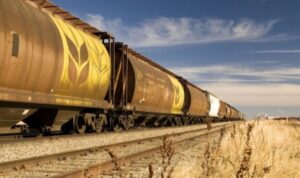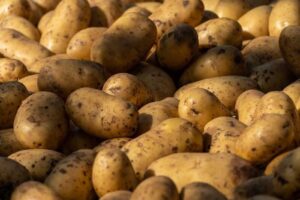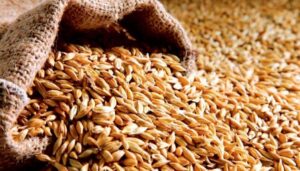
Prices for residential real estate in the UK in November rose by the highest since November 2022 by 3.7% in annual terms, according to a report by the British mortgage company Nationwide Building Society. The indicator has been growing for the tenth month in a row, in October the growth was 2.4%.
The consensus forecast provided by Trading Economics assumed that the growth rate would remain at the October level.
Compared to the previous month, house prices increased by the highest since March 2022 by 1.2% after rising by 0.1% in October and now average 268,144 thousand pounds ($340.2 thousand) per property. This is only 1% below the historical high recorded in 2022.
“The acceleration in house price growth is surprising as affordability remains low by historical standards,” said Robert Gardner, senior economist at Nationwide. ”House prices remain high relative to average earnings and interest rates are well above pre-COVID levels.
http://relocation.com.ua/tsiny-na-zhytlovu-nerukhomist-u-velykij-brytanii-v-lystopadi-zrosly-na-3-7/

Corum Group, a machine-building company that is part of DTEK Energy, intends to produce six new generation RH110 roadheaders in 2025, the company announced on Facebook.
According to the report, a new RH110 was recently presented to miners, which became the eighth one manufactured this year.
As reported, DTEK’s machine builders started producing a new line of RH110 roadheaders in 2023. It differs from its predecessors with an improved and enlarged design of the executive body.
Its weight of almost 55 tons is 20% more than previous models, and the electro-hydraulic part is made using components from leading European manufacturers.
The RH110, in particular, has an enlarged loading arm window to accommodate larger pieces of rock and a protective fence for electric motors to prevent mechanical damage. The shearer is more efficient and safer to operate.
Corum Group is a leading manufacturer of mining equipment in Ukraine and is part of DTEK Energy, the operating company responsible for coal mining and coal-fired power generation within Rinat Akhmetov’s DTEK holding.
In January-October this year, DTEK Energy’s machine-building enterprises produced and repaired 1,039 units of mining equipment, including 11 new tunnelling and shearers.

In 2024, the cost of exporting grain cargo by rail in Ukraine decreased from $21.3/ton to $14-14.5/ton, Valery Tkachev, Deputy Director of Transportation Technology and Commercial Work Department at Ukrzaliznytsia (UZ), wrote on Facebook.
The main reason for the reduction in logistics costs, he said, was the reduction in the cost of using grain wagons.
“Over the course of the year, the cost of using grain wagons decreased from UAH 1688 per day to UAH 280-330 per day, a 5-5.5-fold reduction,” Tkachev emphasized.
According to him, as of November, UZ has a surplus of 5000-7000 grain cars.

The harvest this year was far from planned, so Ukraine had to increase the supply of some vegetables. The volume of imports of potatoes has increased significantly, but other vegetables dismantle quite the opposite dynamics, writes SEEDS.
This was told by Bogdan Dukhnitsky, senior researcher of the Department of Agricultural Production Economics and International Integration of the National Research Center Institute of Agrarian Economics during the conference VeggiFruits. Processing of vegetables and fruits.
“According to the results of 10 months of 2024, there was a decrease in the value volumes of vegetable supplies to Ukraine, which affected their quantitative volumes. At the same time, imports of fruits and berries by their total value remained at the level of 2023.
As for the dynamics of import purchases for the first 10 months of 2024, in the vegetable group it is noteworthy that, although relatively insignificant, but from the base of last year there was an increase of 90% of potato purchases. This is due to the fact that the current year’s crop was far from the projected one.
While the rest of the vegetable items, which we had as a typical staple – onions, garlic, carrots, cabbage and cucumbers), are now showing a significant decline in imports. This is due to the fact that partly due to re-location and deformatization of specialization many enterprises managed to compensate for the significant decline, which we had in 2022,” – said the expert.
According to the expert, according to the results of January-October of this year, the geographical structure of vegetable supplies to Ukraine has a clear leader – it is Turkey. Also large in value volumes of supplies come to Poland and the Netherlands.
“In Ukraine, the standard production volume of all vegetables is about 10 million tons. In 2022, for obvious reasons, production fell significantly, it was 7.5 million tons. That is, 25% of the typical supply was not on the market. In 2023, Ukraine already produced more than 8 million tons of vegetables, and partially this demand was compensated.
Since 2022, as a result of a serious increase in import demand, vegetables were added to the key items in foreign purchases. This was also one of the reasons why in 2022 vegetables in Ukraine showed the largest price increase – plus 68%. This was the most expensive category. However, in contrast to them, fruits were on the list of the most expensive products, and remained there in 2023″, – says Bohdan Dukhnitsky.
In his opinion, in the next year, 2025, due to the existing circumstances, there is a high probability that the market in general will remain uncertain and high risks.
“Due to the fact that according to the results of this year’s harvest there was a significant decrease in quantitative and qualitative parameters for such positions as cabbage, apples, grapes, potatoes and some others, the need to import them remains and this also entails high prices. However, not specifically all these items in significant volumes. For example, for potatoes prices are now on average twice as high as they were a year ago.
However, despite all these circumstances, the supply in the domestic market of Ukraine, in its absolute majority still in the fruit and vegetable segment, in general and for specific products, primarily growing due to the natural and climatic features of our country, will be formed in the absolute majority of its own production, “ – said the expert.
Source: https://www.seeds.org.ua/ukraine-prishlos-uvelichit-import-kartofelya-na-90/

As of November 29, farmers in all regions of Ukraine harvested 73.6 million tons of new crops from 19.5 million hectares, up from 72.9 million tons and 19.5 million hectares a week earlier.
As reported by the Ministry of Agrarian Policy and Food on Friday, 53.9 million tons (53.4 million tons) of grains and 19.7 million tons (19.5 million tons) of oilseeds have already been harvested.
The ministry said that wheat harvesting has been completed, with 22.4 million tons harvested from 4.9 million hectares at a yield of 45.3 c/ha, barley – 5.6 million tons from 1.4 million hectares at a yield of 39.3 c/ha, peas – 469 million tons from 212.3 thousand hectares at a yield of 22.1 c/ha, and rapeseed – 3.5 million tons from 1.2 million hectares at a yield of 27.8 c/ha.
Corn harvesting continues, with 24.2 million tons harvested from 3.8 million hectares (88% of the plan) at a yield of 64.3 c/ha, buckwheat – 131.7 thousand tons from 88.1 thousand hectares (99%) at a yield of 15 c/ha, millet – 161.3 thousand tons from 88.2 thousand hectares (97%) at a yield of 18.3 c/ha. Sunflower was harvested in the amount of 10.2 million tons from 4.9 million hectares (97%) at a yield of 21 c/ha, soybeans – 6 million tons from 2.6 million hectares (99%) at a yield of 23 c/ha.
Agrarians in 16 regions are harvesting sugar beets, they have been dug on an area of 253.4 thousand hectares (98%), 12.1 million tons of sweet roots have been dug at a yield of 477 c/ha.
At the same time, the leaders in grain harvesting are farmers in Odesa region who threshed 4.6 mln ha, Chernihiv region – 4.5 mln tons, and Poltava region – 4.2 mln tons.
In terms of yields, farmers in Khmelnytsky region are ahead with 77.4 c/ha, Chernihiv region – 70 c/ha, and Ternopil region – 68.7 c/ha.
At the same time, as of November 30 last year, 56.254 million tons of grains and pulses were harvested from 10.354 million hectares (95% of the forecast). The average yield as of that date was estimated at 54.3 c/ha.

Oil prices are rising on Monday after a significant decline last week.
The cost of February futures for Brent on the London ICE Futures exchange as of 7:25 a.m. is $72.2 per barrel, which is $0.36 (0.5%) higher than at the close of the previous trading. On Friday, these contracts fell by $0.94 (1.3%) to $71.84 per barrel.
January futures for WTI in electronic trading on the New York Mercantile Exchange (NYMEX) have risen in price by this time by $0.37 (0.54%) to $68.37 per barrel. At the end of the previous session, the value of these contracts decreased by $0.72 (1.1%) to $68 per barrel.
Last week, Brent fell by 3%, WTI – by 4.6%.
On Monday, the market was supported by positive statistics from China published last weekend.
The Purchasing Managers’ Index (PMI) in China’s manufacturing industry increased to 50.3 points in November from 50.1 points a month earlier, according to the country’s State Statistical Office (SSO). Thus, the indicator reached a seven-month high. A PMI reading above 50 points indicates an increase in activity in the industrial sector, while a reading below 50 points indicates a decline. The indicator has been above this level for two months.
Traders’ attention is now focused on the OPEC+ Ministerial Monitoring Committee meeting and the ministerial meeting, which were postponed from December 1 to December 5. The reason for the postponement was the participation of several ministers in the Kuwaiti summit.
Earlier, Bloomberg reported that the key OPEC+ countries have begun discussions about a possible further postponement of the oil production increase scheduled for January. According to the agency, the countries doubt that the market situation allows them to increase production in January and may postpone these plans for several months.